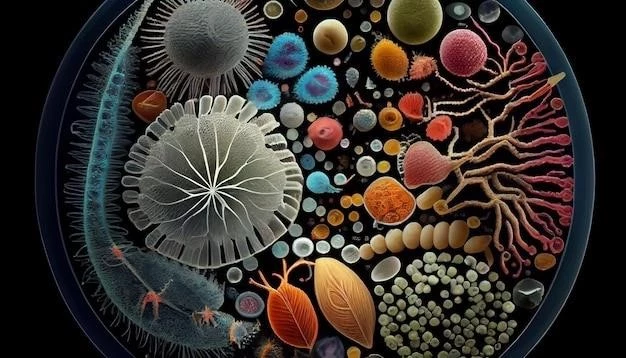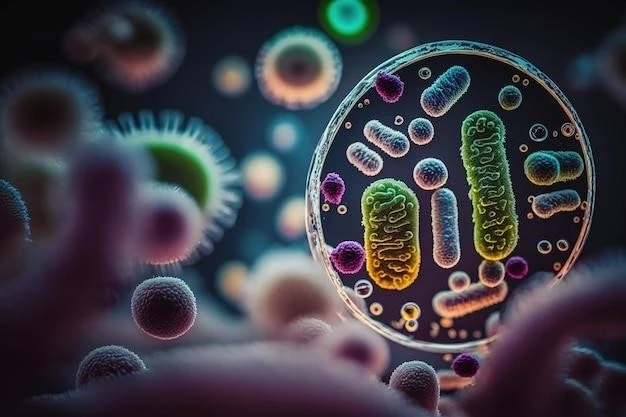Overview of Mitochondrial Cytopathy
Mitochondrial cytopathies are a diverse group of disorders resulting in inadequate energy production. They can arise from genetic mutations, toxins, or the aging process.
Mitochondrial cytopathies, also known as primary mitochondrial diseases, result from mutations in mitochondrial DNA (mtDNA) or nuclear DNA (nDNA) affecting mitochondrial function. These mutations can lead to energy production deficits and impact various body systems.
Symptoms and Diagnosis
Symptoms of mitochondrial cytopathies can vary but often include muscle weakness, seizures, vision or hearing loss, and developmental delays. Diagnosis involves genetic testing and thorough evaluation by healthcare professionals.
Definition and Background
Mitochondrial cytopathies, also known as primary mitochondrial diseases, stem from genetic mutations affecting mitochondrial DNA (mtDNA) or nuclear DNA (nDNA) that disrupt energy production in cells. These mutations can impact various tissues and organs, leading to a spectrum of clinical manifestations.
Recognizing Mitochondrial Disease
Recognizing mitochondrial diseases involves observing symptoms like muscle weakness, seizures, developmental delays, and vision or hearing loss. Diagnosis relies on genetic testing and expert medical evaluation;
Genetic Mutations and Inheritance Patterns
Mitochondrial cytopathies arise from mutations in mitochondrial DNA (mtDNA) or nuclear DNA (nDNA). These mutations can be inherited or acquired and disrupt essential proteins governing mitochondrial function.
Treatment and Management
Effective management of mitochondrial cytopathies involves a multidisciplinary approach focusing on symptom alleviation, energy support, and overall health optimization. Treatment strategies aim to address individual symptoms and improve quality of life.
Approaches to Mitochondrial Disease
Approaches to managing mitochondrial diseases focus on symptom relief, energy support, and optimizing overall health. Treatments may involve medications, supplements, physical therapy, and lifestyle modifications tailored to individual needs.

Impact on Different Body Systems
Mitochondrial cytopathies can affect various body systems, primarily impacting muscle and nervous systems. These disorders result in inadequate energy production, leading to a range of symptoms and complications.
Effects on Muscle and Nervous Systems
Mitochondrial cytopathies predominantly impact the muscle and nervous systems due to energy deficits. These disorders, stemming from genetic mutations, can lead to muscle weakness, impaired coordination, and various neurological symptoms.
Understanding the mechanisms of bioenergetic deficits and exploring potential therapeutic options are crucial in addressing mitochondrial cytopathies. Recent research has shed light on the role of mitochondria in various health conditions, providing valuable insights for treatment and management.

Research and Insights
Staying informed about the latest discoveries and advancements in research related to mitochondrial cytopathy is crucial for both healthcare providers and patients. Researchers continue to uncover new insights into the molecular mechanisms underlying mitochondrial diseases, paving the way for potential groundbreaking treatments and management strategies. Keeping abreast of these developments can help individuals make informed decisions about their health and well-being.
Prevention and Lifestyle Considerations
Adopting healthy lifestyle practices such as maintaining a nutritious diet, regular exercise, managing stress, and avoiding toxins can support overall mitochondrial health. Consult healthcare professionals for personalized advice.
Promoting Mitochondrial Health
Enhancing mitochondrial health involves adopting a lifestyle that includes regular physical activity, a diet rich in antioxidants and essential nutrients, maintaining a healthy weight, managing stress effectively, avoiding harmful toxins, and getting adequate sleep. Consult a healthcare provider for personalized advice tailored to your specific needs and conditions.
